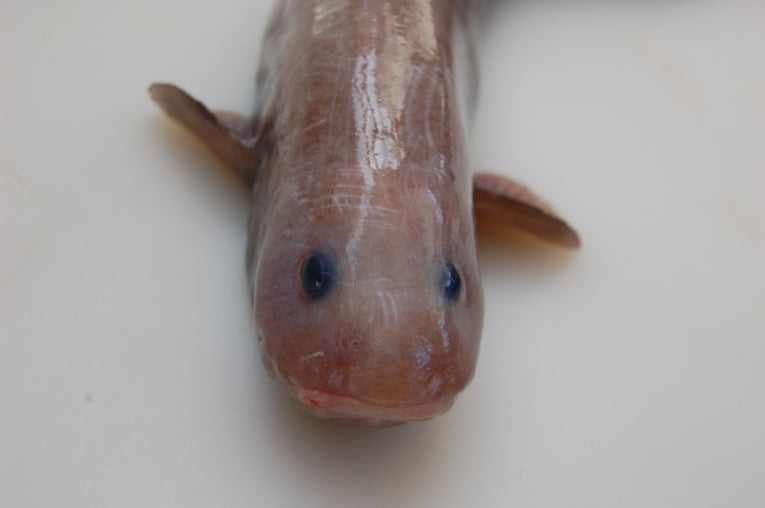The eelpout is named because of its long body, but it's in the perch group, related to the little blenny or the large ocean pout, Zoarces. Its actual genus is now recognised as Pachycara, where 23 species already reside. This one will be the 24th in that group, alongside the brown eelpout and the snubnose eelpout. The species is living in one of the deepest points on earth, or rather in the ocean.
The Kermadec Trench is a deep Pacific abyss, descending down to 6.5km, north of New Zealand, that Scotland and New Zealand have been jointly investigating. Everything from amphipods to rat-tail fish, at new depth records, and this eelpout have been recorded, using 6,500 photographs. The cusk eels found were also at new depth records, as our knowledge of the deep sea expands and furthers our ability to understand such interesting but demanding marine ecosystems.
Dr Alan Jamieson from Aberdeen University and Dr Malcolm Clark from NIWA collaborated with Museum of New Zealand Te Papa Tongarewa staff to gain such incredible, novel and useful data aboard their intrepid research vessel RV Kaharoa. They baited for the fish catch, and used cameras that utilised free-fall landers on this fourth voyage to Kermadec, using equipment they designed at Oceanlab.

Oceanlab's Alan Jamieson and Thom Linley with some of the fish from 2000m, Niki Lacey and Heather Ritchie processing the amphipod catches, 1st Officer Steve Bailey and Alan with two large cusk eels from 3500m and the new species of eel pout from 4250m; Credit: © Oceanlab at Aberdeen University
As Dr Jamieson quotes "Between this and the previous expeditions we have now sampled from a depth range greater than Mount Everest is high. What makes the whole experience even more personally satisfying is that all the equipment used in these research cruises was designed and constructed at Oceanlab." The previous three voyages have obviously stood them in good stead, looking at these results.
Oceanlab is the prestigious sub-sea research facility of the University of Aberdeen. The essential funding came all the way from the Marine Alliance for Science & Technology for Scotland, but the Oceanlab "depth" of experience is providing industrial as well as research support down to incredible depths, now reaching 11,000 metres.










